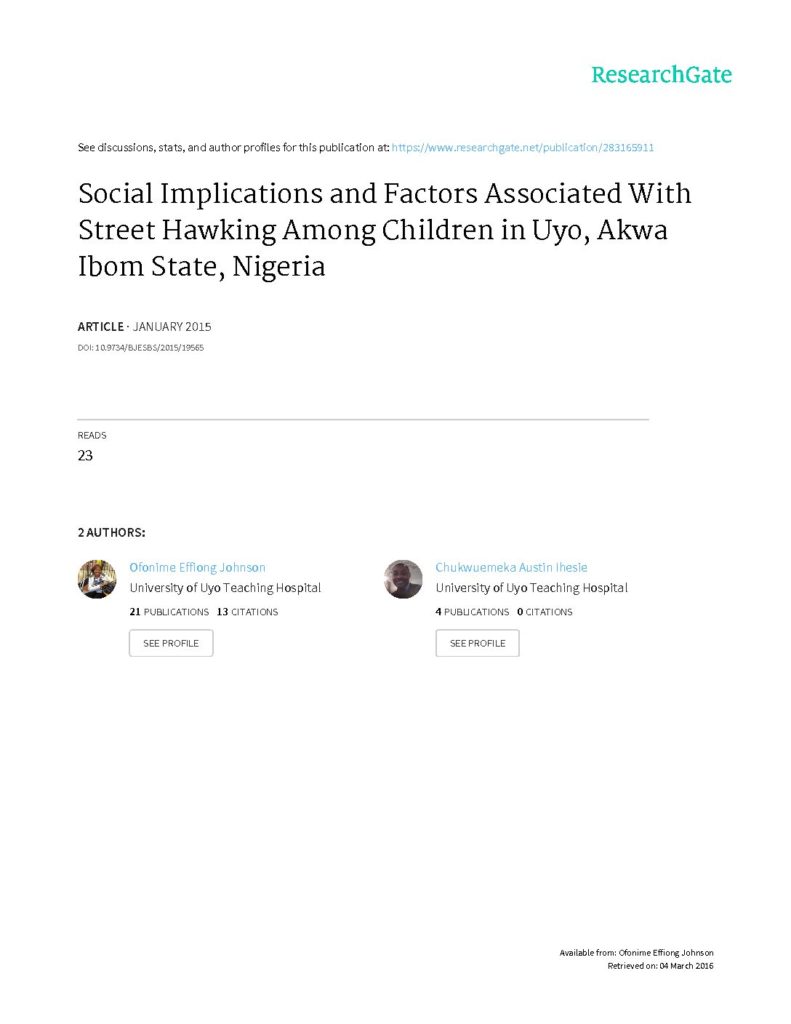
Social Implications and Factors Associated With Street Hawking Among Children in Uyo, Akwa Ibom State, Nigeria
Summary
This article is published in the British Journal of Education, Society & Behavioural Science and shared under a Creative Commons Attribution License.
Background: Street hawking is one of the commonest forms of child labor in Nigeria. This study aimed at determining the social implications and factors associated with street hawking among children in Uyo, South-South Nigeria.
Materials and Methods: This was a cross-sectional descriptive study carried out in Uyo in April, 2015. The instrument of data collection was a self designed, interviewer administered semistructured questionnaire. All consenting children aged 5-17 years hawking along major traffic light intersections within Uyo Metropolis during the days of data collection were included in the study. Data was analyzed using SPSS version 20.Level of significance was set at 0.05.
Results: A total of 225 respondents participated in the study; 119 (52.9%) were males and 106 (47.1%) females. The mean age of respondents was 13.27 (2.52) years. Only 157 (73.03%) were presently in school, while 48 (21.3%) had dropped out and 10 (4.4%) never went to school. Up to 66 (29.3%) could not communicate fluently in English. Fifty six (35.7%) of those in school reported worsening of their grades since hawking began. A greater number, 168 (74.7%) lived with their parents. The most common singular occupation of respondents’ mothers, 139 (61.8%) and fathers, 52(23.1%) respectively was trading. Up to 42 (18.7%) had lost their fathers. While hawking, 112 (49.8%) were robbed, 82 (36.4%) were involved in fights, 101 (44.9%) were physically harassed by older adults and 6 (2.7%) had been targets of attempted kidnapping. Majority, 145 (64.4%) hawked to augment family income, while 63 (28.8%) hawked to earn a living. More than half, 131 (58.2%) were unhappy with the work and desired to quit.
Conclusion: In view of the numerous negative effects of hawking on children, government should implement and enforce the legislation addressing child street hawking in Nigeria and also set up poverty alleviation programmes.
Discussion
Users can discuss this report and make suggestions for future updates. You must be signed in to submit a comment.
No comments
Join the conversation and
Become a Member Existing member loginbecome a member.